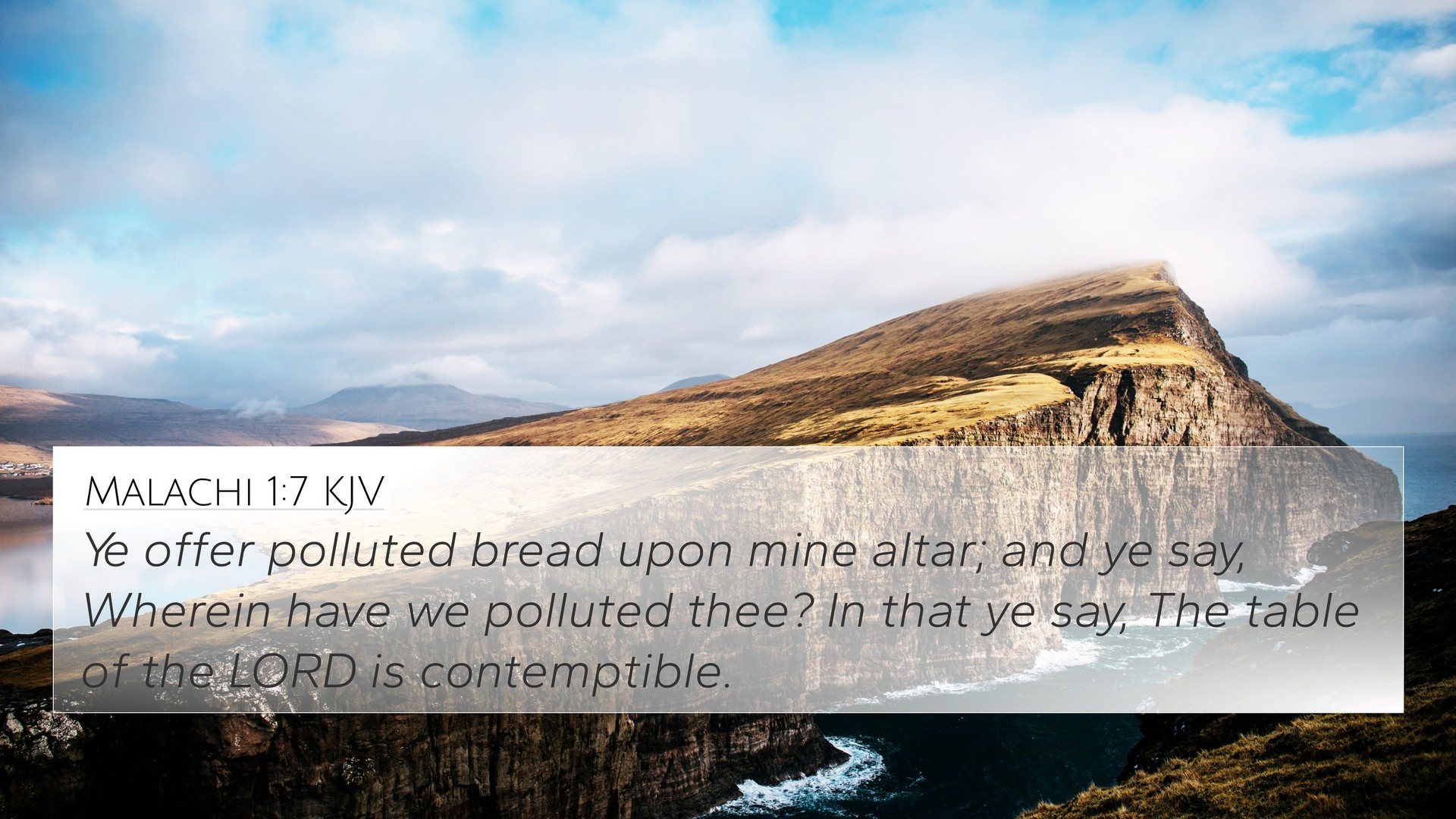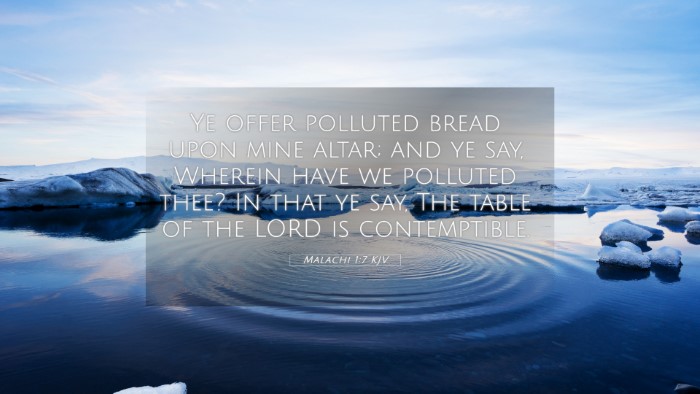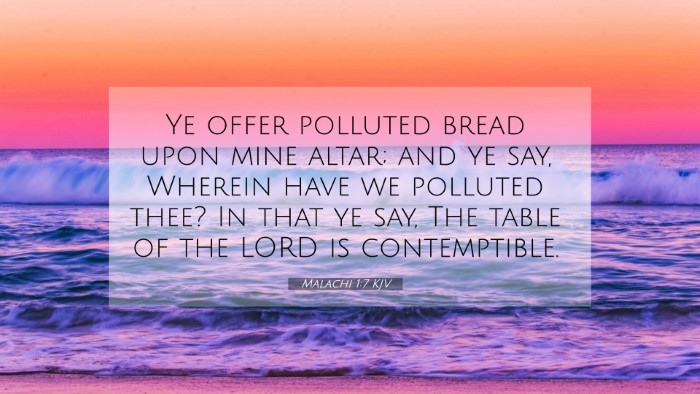Old Testament
Genesis Exodus Leviticus Numbers Deuteronomy Joshua Judges Ruth 1 Samuel 2 Samuel 1 Kings 2 Kings 1 Chronicles 2 Chronicles Ezra Nehemiah Esther Job Psalms Proverbs Ecclesiastes Song of Solomon Isaiah Jeremiah Lamentations Ezekiel Daniel Hosea Joel Amos Obadiah Jonah Micah Nahum Habakkuk Zephaniah Haggai Zechariah MalachiMalachi 1:7 Similar Verses
Malachi 1:7 Cross References
Ye offer polluted bread upon mine altar; and ye say, Wherein have we polluted thee? In that ye say, The table of the LORD is contemptible.
Uncover the Rich Themes and Topics of This Bible Verse
Listed below are the Bible themes associated with Malachi 1:7. We invite you to explore each theme to gain deeper insights into the Scriptures.
Malachi 1:7 Cross Reference Verses
This section features a detailed cross-reference designed to enrich your understanding of the Scriptures. Below, you will find carefully selected verses that echo the themes and teachings related to Malachi 1:7 KJV. Click on any image to explore detailed analyses of related Bible verses and uncover deeper theological insights.

Malachi 1:12 (KJV) »
But ye have profaned it, in that ye say, The table of the LORD is polluted; and the fruit thereof, even his meat, is contemptible.

1 Corinthians 11:27 (KJV) »
Wherefore whosoever shall eat this bread, and drink this cup of the Lord, unworthily, shall be guilty of the body and blood of the Lord.
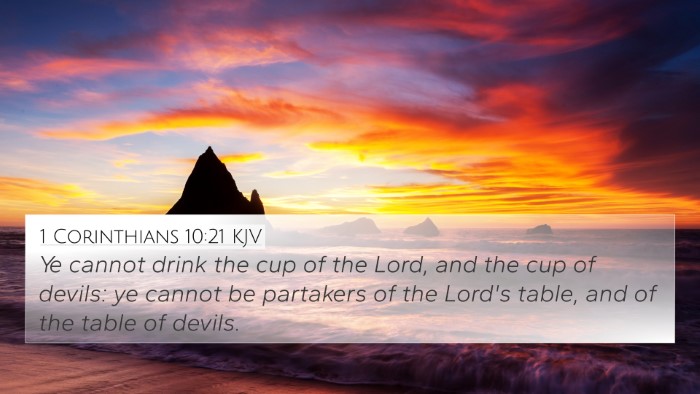
1 Corinthians 10:21 (KJV) »
Ye cannot drink the cup of the Lord, and the cup of devils: ye cannot be partakers of the Lord's table, and of the table of devils.
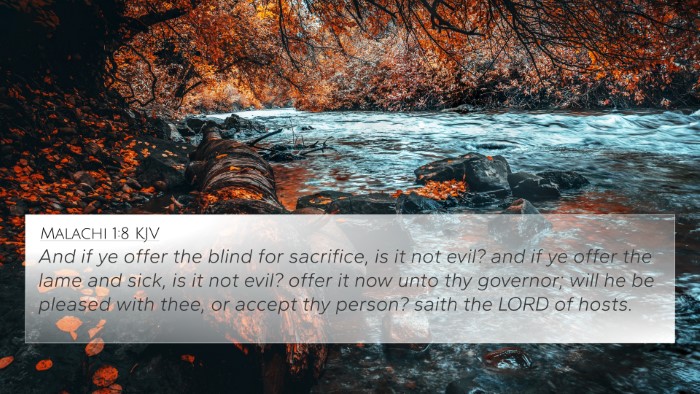
Malachi 1:8 (KJV) »
And if ye offer the blind for sacrifice, is it not evil? and if ye offer the lame and sick, is it not evil? offer it now unto thy governor; will he be pleased with thee, or accept thy person? saith the LORD of hosts.
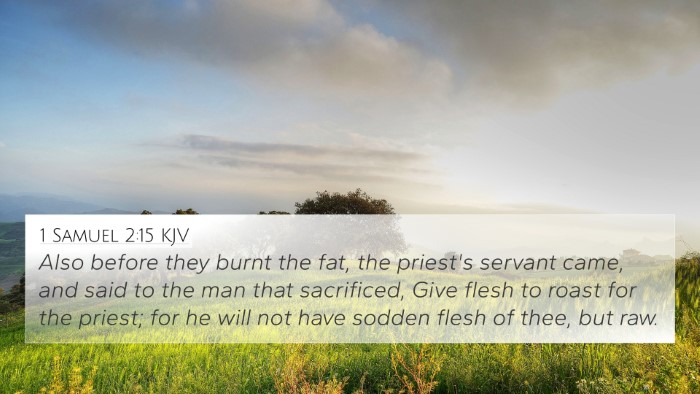
1 Samuel 2:15 (KJV) »
Also before they burnt the fat, the priest's servant came, and said to the man that sacrificed, Give flesh to roast for the priest; for he will not have sodden flesh of thee, but raw.
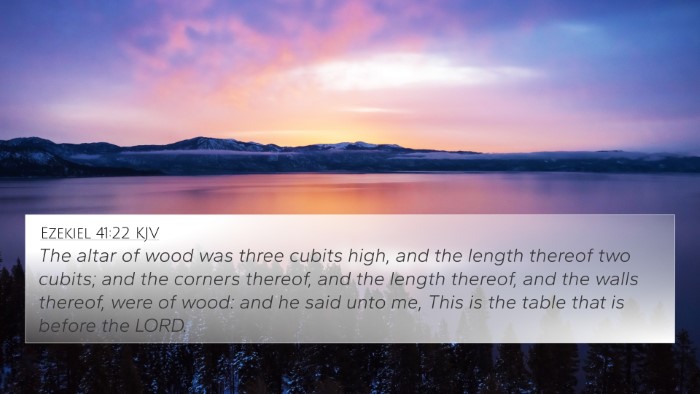
Ezekiel 41:22 (KJV) »
The altar of wood was three cubits high, and the length thereof two cubits; and the corners thereof, and the length thereof, and the walls thereof, were of wood: and he said unto me, This is the table that is before the LORD.
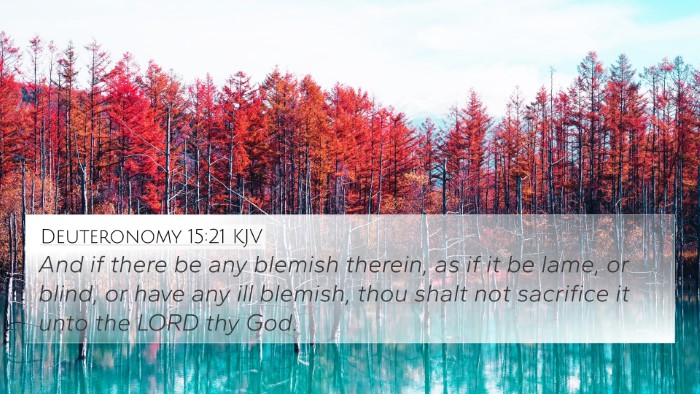
Deuteronomy 15:21 (KJV) »
And if there be any blemish therein, as if it be lame, or blind, or have any ill blemish, thou shalt not sacrifice it unto the LORD thy God.
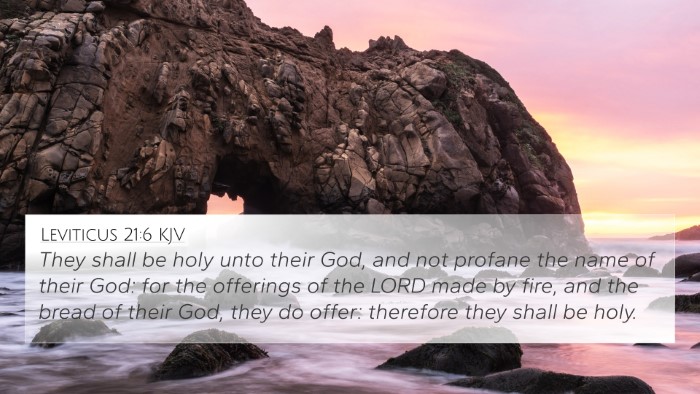
Leviticus 21:6 (KJV) »
They shall be holy unto their God, and not profane the name of their God: for the offerings of the LORD made by fire, and the bread of their God, they do offer: therefore they shall be holy.
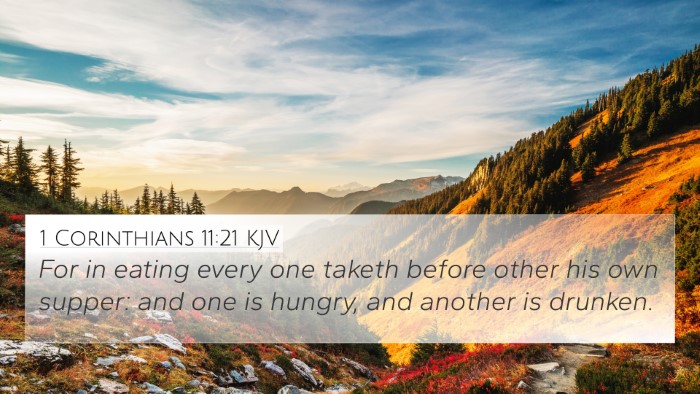
1 Corinthians 11:21 (KJV) »
For in eating every one taketh before other his own supper: and one is hungry, and another is drunken.
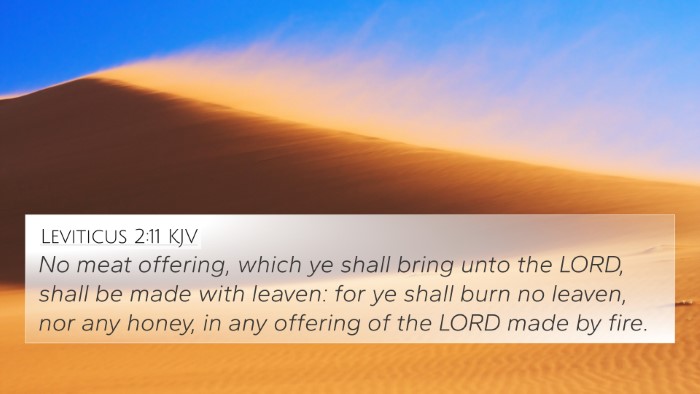
Leviticus 2:11 (KJV) »
No meat offering, which ye shall bring unto the LORD, shall be made with leaven: for ye shall burn no leaven, nor any honey, in any offering of the LORD made by fire.
Malachi 1:7 Verse Analysis and Similar Verses
Understanding Malachi 1:7
Verse: "You offer defiled food upon my altar; but say, ‘In what way have we defiled You?’ By saying, 'The table of the Lord is contemptible.'" (Malachi 1:7, NKJV)
This verse depicts God's complaint against Israel regarding their worship practices, specifically the offerings made at the altar. Here's an interpretation based on insights from different public domain commentaries:
Summary of Meaning
The Lord, through the prophet Malachi, addresses the issue of improper worship that the Israelites have engaged in. They have been offering 'defiled' or unclean food, which symbolizes their lack of reverence and respect for God. Instead of bringing the best of their offerings, they have resorted to presenting inferior sacrifices, which showcases their neglect in honoring God.
Despite the seriousness of their acts, the people respond with confusion, asking how they have defiled the Lord. This reaction signifies their spiritual blindness and unwillingness to recognize the gravity of their actions—a theme echoed in the commentaries by Matthew Henry and Albert Barnes, highlighting the disconnect between God’s expectations and the people's practices.
Adam Clarke emphasizes that the phrase "the table of the Lord is contemptible" reflects how the Israelites have trivialized their relationship with God and the significance of genuine worship.
Bible Cross References
This verse can be interconnected with several others that highlight similar themes of worship, sacrifice, and the importance of reverence in offering to God. Here are some relevant cross-references:
- Exodus 23:18: Discusses the importance of bringing the best of firstfruits to God.
- Leviticus 22:20-22: Outlines the necessity of offering unblemished animals.
- Isaiah 1:13-14: God loathes the offerings of those who don't follow His commands.
- Matthew 5:23-24: Advises reconciliation before bringing gifts to the altar, underscoring the relational aspect of offerings.
- Hebrews 13:15-16: Emphasizes the importance of acceptable worship to God.
- Malachi 1:8: Further elaborates on God’s complaint against the people's lesser offerings.
- Proverbs 15:8: Highlights that the sacrifice of the wicked is an abomination to the Lord.
- Micah 6:6-8: Raises questions about what God truly desires from His people in worship.
- John 4:24: Speaks about the necessity of worshiping God in spirit and in truth.
- Romans 12:1: Urges believers to present their bodies as living sacrifices, holy and pleasing to God.
Thematic Connections
This scripture highlights various themes found throughout the Bible, including:
- Worship and Sacrifice: The expectation of genuine devotion is consistent throughout both the Old and New Testaments.
- God’s Holiness: A recurring theme showing that God desires purity in worship and offerings.
- Spiritual Blindness: The theme of people failing to recognize their shortcomings in their relationship with God.
- Faithfulness to God: The importance of upholding one’s covenant commitments to the Lord.
Insights from Commentaries
- Matthew Henry: Commentates that the Israelites’ offerings reflected their heart attitude, and without true devotion, their sacrifices were meaningless.
- Albert Barnes: Notes how worship must come from a place of sincerity and love, as opposed to mere obligation.
- Adam Clarke: Explains that the phrase 'table of the Lord is contemptible' implies a severe disrespect and diminishing of God's holiness.
Conclusion
The message of Malachi 1:7 resonates strongly within the context of covenant loyalty and proper worship practices. As believers study this verse, it encourages self-reflection on how we approach worship and the quality of our offerings to God. A comprehensive understanding of related verses and themes can foster deeper spiritual insight and enhance one's worship experience.
